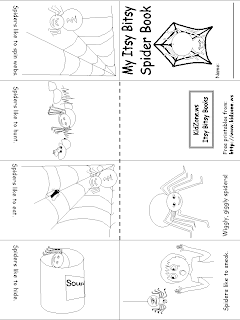This is a post for those who teach teens...
Textbooks are an important part of an ESL class. They provide direction and explanations of key ESL concepts. While textbooks are of great value to the ESL teacher, the world outside the textbook is vast and has limitless potential
How to Think Outside The Book
1
Dig a Little Deeper
Magazines and newspapers are some of the best reading materials that you can use with your ESL students, and there are several activities you can do with just one paper. With just a newspaper you can review and practice all three reading strategies that your students should know.
☛ Skim some articles for the main points. Encourage your students not to read every word, but to focus on headlines, subheadings, and portions of the rest of the article.
☛ Scan the paper to see when a movie might be playing or for the events that will happen locally this weekend. When scanning, students should look for answers to specific questions.
☛ Finally, do some careful or detail reading for other articles, and ask comprehension questions. Also, review unfamiliar vocabulary with your students. You will find many opportunities to expand their knowledge of vocabulary in the newspaper. There is also culture to be learned from the paper, especially in the obituaries.
Your students can see what a culture value is by noticing what is mentioned in an obituary. In addition, do some compare and contrast work between this newspaper and one from a student’s native language. If possible, borrow a foreign newspaper from the library and ask your student to explain the different sections. He will be challenged to use English to explain to the rest of the class, and they will learn more about his culture.
2
Something May Catch Your Eye
Now that you are out of the book, keep going with a movie. Movies are a great resource for many different classroom activities. Some ESL programs have entire classes devoted to American film. How you decide to use movies in your classroom is up to you. Generally, you can choose to use one movie and do several activities with the whole movie or particular scenes. The other option is to pick and choose scenes from different movies and do one or two activities with each.
One activity you can to with any move scene is a cloze listening exercise. Be warned, this will take some preparation ahead of time. Before you meet with your class, type out the dialogue from a particular scene of the movie. Then delete key words in that dialogue and leave blank spaces for your students to fill in as they listen. If you have already taught them the vocabulary, play the scene one or two times and have them fill in the blanks. Then have students compare answers and give them the correct answers. Then have groups of students read the dialogues as if they were the actors. If you have not taught the vocabulary to your students prior to watching the movie clip, give them a word bank from which to choose the answers. Before watching, read through the words in the word bank and review their pronunciation so your students will be able to recognize the words when they hear them. It is also beneficial to your students if they think of words that would logically fit into the blanks in the dialogue before watching the clip. They may be able to guess some words correctly, but most likely your students will come up with synonyms for the words actually in the scene. You can then explain to your students that guessing in this manner is a useful strategy for ESL reading. When they encounter an unfamiliar word in their English readings, they can guess at the meaning of the word based on the context, and they should be able to determine a synonym or a word with similar meaning to the target word. This will increase thier comprehension without them having to use a dictionary.
3
Get Out (and about)
To get your students using language in authentic situations, take a field trip. It does not have to be something elaborate or requiring special transportation. Think of the resources that lie within walking distance of your school, and make use of them. This may mean that your students go to a restaurant and place an order or ask the server questions about a menu item. If you teach in a city and there are public courthouses nearby, take your students to listen to some of the proceedings and then discuss what was said with them after returning to your classroom. If you teach near a beach or a public park, take your students out to do some surveys with people who might be there. There are also many restaurants, theaters, post offices and other businesses that will give free tours to students. All of these trips are great speaking activities and listening comprehension activities for your class, and it can also be a way to learn less common vocabulary in a purposeful way.
You do not have to keep your students’ noses in their textbooks to ensure a productive ESL class. Sometimes the best thing you can do for your students is to get out of the book and into the real world.
Your students will be challenged, but the opportunity for learning will be unlike anything chapter six has to offer. So next time you want to liven up your class, get out of the book and into some real life situations to practice English.
this article is from: http://busyteacher.org/6516-b-thinking-outside-the-textbook.html





